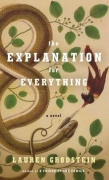One Reason I Like Fiction
December 18, 2013
My wife recently read Blue Nights by Joan Didion, a moving memoir about the author’s loss of her 39-year-old daughter. Like many other readers, Peggy admired the book but remained puzzled about what exactly killed the still-youngish woman. The memoir is “a little less than clear on the events that took place.”
I haven’t read the book myself and have little right to comment on it. The link on the quotation above leads to an article that discusses the possible diseases involved and reasons why Didion may have dodged the issue—if indeed “dodged” is an appropriate word for a deliberate decision by a well-respected writer whose recent work has courageously been “turning the scalpel on herself.”
My point here is that, in a novel, the author would not have been able to conceal or evade such a basic fact. If the daughter were a fictional character, readers would demand to know what was going on, and editors would demand that readers be satisfied. Perhaps one could structure a novel so that the mystery itself, the unknowability, became a central theme, but that’s a different question.
 I’ve been pondering this matter in connection with two Philadelphia-area authors who will be reading at Musehouse in January: Lauren Grodstein and Susan Barr-Toman. Both tackle difficult subjects without flinching from the details. Grodstein’s 2009 novel A Friend of the Family centers on a suburban doctor who has clear and reasonable ideas about right and wrong and who gets into deep trouble, personal and moral, when he tries to act on those notions. Her latest novel, The Explanation for Everything, features a widowed biologist whose trust in science is challenged by a student who believes in God. Not the usual pattern of religious faith undermined by science, but the reverse—and though there’s plenty of humor in the situation, the novel takes the challenge by faith quite seriously. The protagonist’s science begins to fail him; his experiments go wrong, and his Darwinist convictions bring him little solace for the death of his wife. Enter a Christian student—a nubile female, no less—who offers both personal and spiritual comfort…
I’ve been pondering this matter in connection with two Philadelphia-area authors who will be reading at Musehouse in January: Lauren Grodstein and Susan Barr-Toman. Both tackle difficult subjects without flinching from the details. Grodstein’s 2009 novel A Friend of the Family centers on a suburban doctor who has clear and reasonable ideas about right and wrong and who gets into deep trouble, personal and moral, when he tries to act on those notions. Her latest novel, The Explanation for Everything, features a widowed biologist whose trust in science is challenged by a student who believes in God. Not the usual pattern of religious faith undermined by science, but the reverse—and though there’s plenty of humor in the situation, the novel takes the challenge by faith quite seriously. The protagonist’s science begins to fail him; his experiments go wrong, and his Darwinist convictions bring him little solace for the death of his wife. Enter a Christian student—a nubile female, no less—who offers both personal and spiritual comfort…
 Susan Barr-Toman’s novel When Love Was Clean Underwear, winner of the Many Voices Project award, was published by New Rivers Press in 2009. It begins with an elderly, terminally ill woman demanding that her live-at-home daughter help her commit suicide. The mother prepares a series of index cards with detailed instructions for each step: “Number One: Place pillow over my face and apply firm but gentle pressure for a minimum of five minutes.” After the suicide/murder in the first chapter, the introverted and now-culpable daughter has to make a life for herself—and that’s the story for the rest of the book.
Susan Barr-Toman’s novel When Love Was Clean Underwear, winner of the Many Voices Project award, was published by New Rivers Press in 2009. It begins with an elderly, terminally ill woman demanding that her live-at-home daughter help her commit suicide. The mother prepares a series of index cards with detailed instructions for each step: “Number One: Place pillow over my face and apply firm but gentle pressure for a minimum of five minutes.” After the suicide/murder in the first chapter, the introverted and now-culpable daughter has to make a life for herself—and that’s the story for the rest of the book.
Most fiction writers choose easier topics, of course. But the genre allows us—indeed, challenges us—to explore the hardest truths in depth, without flinching. And that’s why I think fiction is often truer than memoir, truer perhaps than what we call real life, which for many of us teems with artificialities.
Filed in Literary Meanders
Tags: Blue Nights, Fiction, Joan Didion, Lauren Grodstein, memoir, novels, Susan Barr-Toman
One Response to “One Reason I Like Fiction”
Leave a comment Cancel reply
This site uses Akismet to reduce spam. Learn how your comment data is processed.

December 20, 2013 at 11:05 am
Both these books sound really interesting. This reminds me of that humbling idea that something being true doesn’t make it work as fiction.
LikeLike